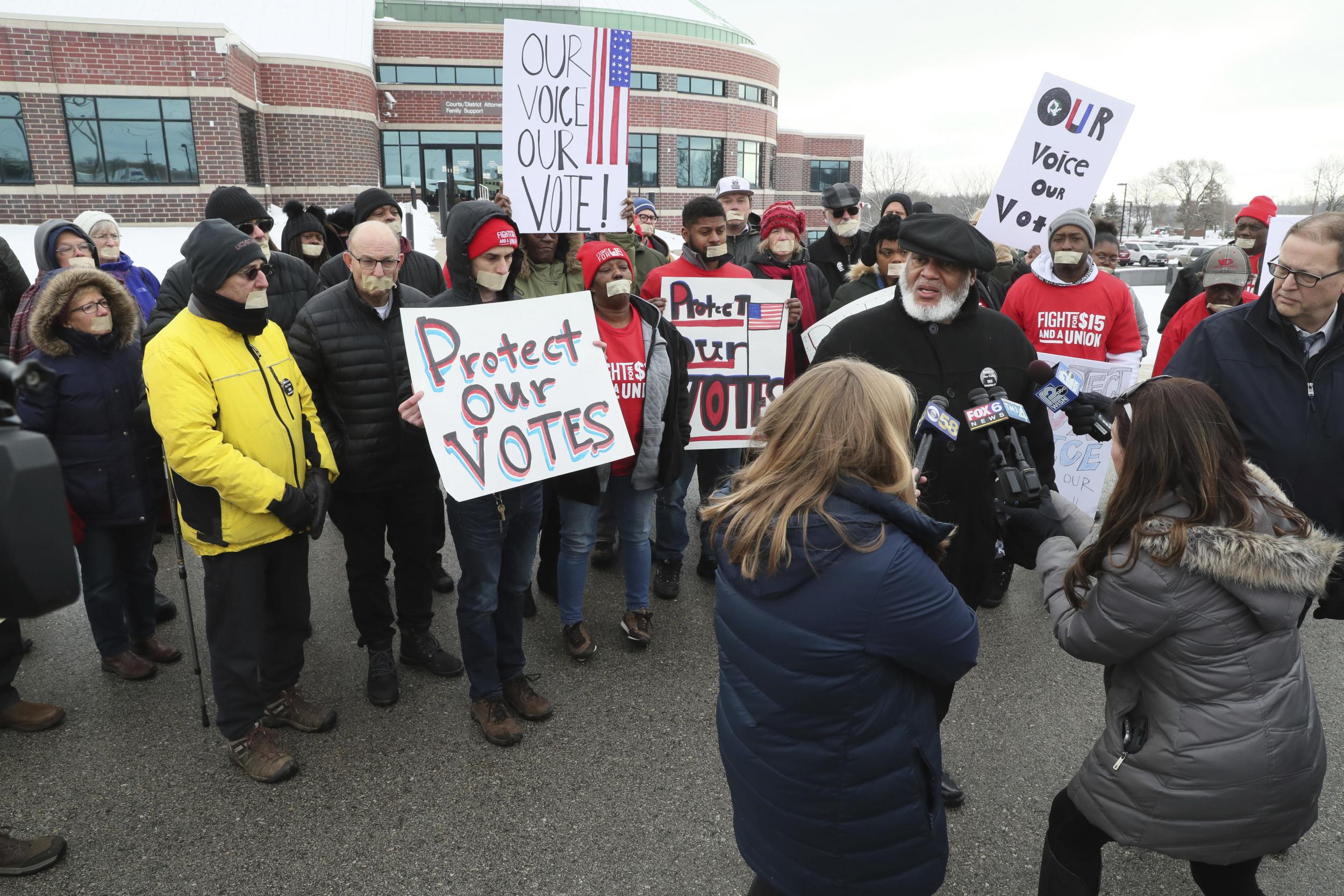Judge demands massive voter roll purge impacting Democratic majorities across Wisconsin
Purge reportedly impacts a majority of voters who cast ballots for Hillary Clinton in 2016

Your support helps us to tell the story
From reproductive rights to climate change to Big Tech, The Independent is on the ground when the story is developing. Whether it's investigating the financials of Elon Musk's pro-Trump PAC or producing our latest documentary, 'The A Word', which shines a light on the American women fighting for reproductive rights, we know how important it is to parse out the facts from the messaging.
At such a critical moment in US history, we need reporters on the ground. Your donation allows us to keep sending journalists to speak to both sides of the story.
The Independent is trusted by Americans across the entire political spectrum. And unlike many other quality news outlets, we choose not to lock Americans out of our reporting and analysis with paywalls. We believe quality journalism should be available to everyone, paid for by those who can afford it.
Your support makes all the difference.A bipartisan commission in Wisconsin will be forced to purge up to 209,000 names from the state's voter rolls after a judge held the group in contempt and threatened its dissenters with daily fines.
Judge Paul Malloy told the six-person panel to begin the purge immediately after he sided with a lawsuit from conservatives, who argued that voters who moved in the state may still be able to cast ballots in their previous districts during the upcoming elections.
The commission, which includes an equal number of Democrats and Republicans, requested to withhold purging the voter rolls until after the presidential elections due to previous inaccuracies involving state data for residents who relocated throughout Wisconsin.
The purge reportedly impacts districts with Democratic majorities, including college campuses and urban areas, in a battleground state which Donald Trump won in 2016 by less than 23,000 votes.
In his ruling, the judge told the panel it would face a $50 (£39) daily fine for each day the purge is not carried out, while specific dissenters on the commission would also each face a $250 (£193) daily penalty.
“I cannot be clearer on this”, Judge Malloy said on Monday. “They need to follow the order.”
The judge also addressed the panel’s numerous attempts to stall the purge, demanding it begin removing names ahead of the next election despite an ongoing legal battle and requests for the state’s Supreme Court to intervene.
He told the group: “You have this court order, you have an appeal, and a petition to the Supreme Court. But nothing has told this court that it can’t act.”
Though voters will still be able to bring proper documentation to register on Election Day, opponents of the purge say it will lead to voter apathy and hamper turnout in an otherwise crucial election season.
“It’s no secret that this voter purge would target Wisconsin’s communities of colour and young voters — the very people who are most energised to turn out in 2020 and win change for our neighbourhoods,” Jennifer Berry, a Wisconsin resident and local activist, told the New York Times in a statement, adding: “We’ll continue to fight back in the courts, in the streets, and by organising so every Wisconsinite is ready and registered to vote.”
An analysis conducted by The Milwaukee Journal Sentinel found a majority of voters included in the purge lived in areas that voted for the former 2016 Democratic nominee, Hillary Clinton.
Voters included in the purge were reportedly provided 30 days to respond to an October mailing that enquired about their current addresses in the state.
Meanwhile, a federal lawsuit has been filed by The League of Women Voters of Wisconsin to stop the purge from happening, arguing that the removal of voter registrations without adequate notice would amount to a violation of constitutional due process.
Additional reporting by AP
Join our commenting forum
Join thought-provoking conversations, follow other Independent readers and see their replies
Comments